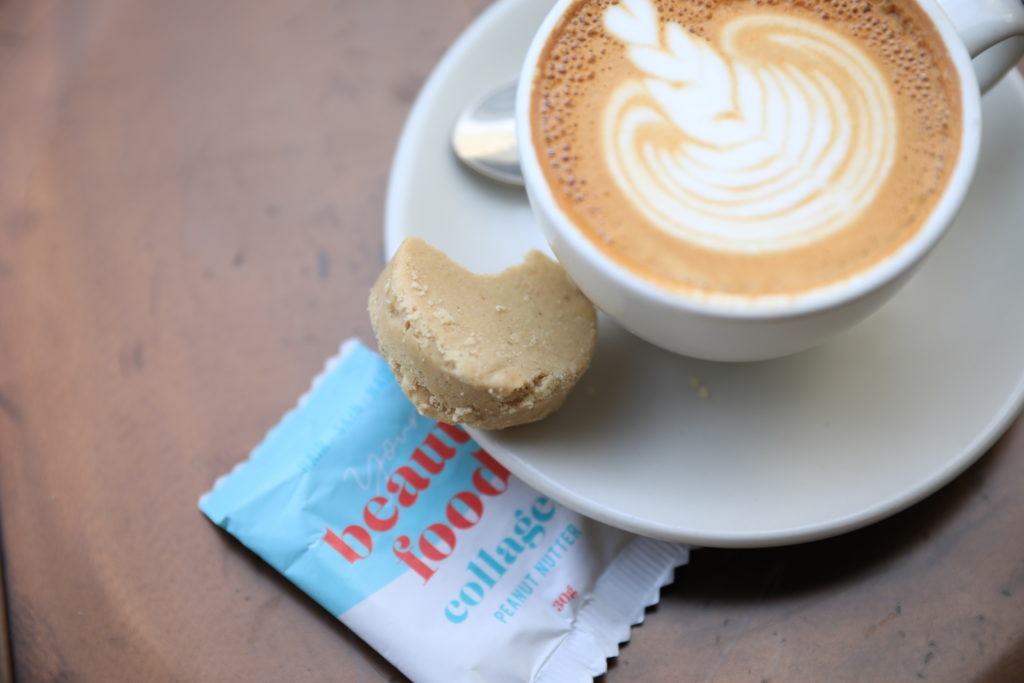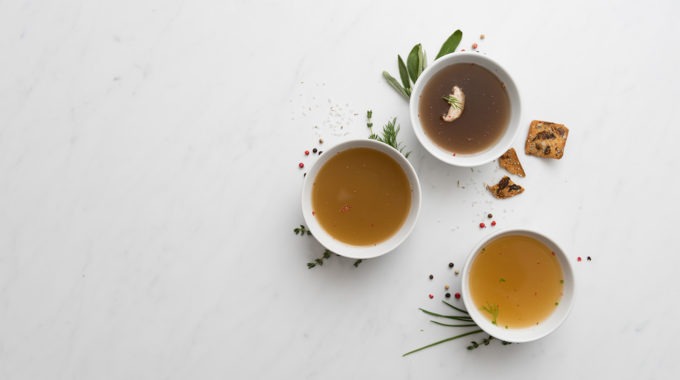Collagen: eat your way to younger skin
Collagen is the most abundant protein in the human body. It’s found in your hair, your skin and your nails, and it’s the main protein in your connective tissue. Once you get to about 25 years of age, your collagen production starts to reduce, which is why young people have such fresh, plump skin, and older skin seems less elastic. It’s true that when people think of collagen, they tend to think of beauty products, but it turns out that if you want to improve your skin, you need to eat collagen, not smear it on your face.
“You can’t improve your body’s collagen by rubbing it on your skin,” says Libby Babet, trainer and co-founder of Chief healthy snack foods. “It’s like rubbing protein powder on your muscles and hoping they’ll get bigger.”
Babet says we should think of food as information. The food you eat contains information (such as nutrients) that your body uses to create a human being (you). The better the information you feed your body, the better body you’ll be able to create.
“There are a lot of new studies that show consuming supplements or collagen-rich foods can help increase your body’s levels,” she says. “In other words, feeding your body the information that collagen contains allows it to create more.”

So what foods are best?
To make collagen, your body needs amino acids. These are the nutrients you get from eating protein-rich foods like beef, chicken, fish, beans, eggs and dairy products.
“The process also requires vitamin C, zinc and copper,” Babet explains. “You can get vitamin C by eating things like citrus fruits, tomatoes, broccoli and greens. You can get the minerals by eating meats, shellfish, nuts, whole grains and beans.”
If you’re looking for the best source that isn’t a supplement, Babet recommends you go for bone broth made from beef, chicken or fish bones.
“I don’t get much of a chance to make my own bone broth these days so if I buy it ready-made I always buy grass-fed, and if I can I’ll opt for organic,” she says.
When you’re consuming collagen, Babet’s number one rule is to avoid combining it with sugar. Sugar competes with vitamin C, which is important for absorbing collagen. In fact, before you start eating more collagen-rich foods, reducing the amount of sugar in your diet is probably the number one thing you can do to improve your levels.

How much should we be consuming?
Most of the research is based on at least five grams per day. Chief Collagen Bars contain 11.5 grams per serve, which is aligned with studies around joint and tendon health. Beauty Food also sells collagen-rich products that are low in sugar.
“You need to be aware that most products have very little collagen and try to hide this by quoting in milligrams,” Babet warns. “For example, 2000mg [2 grams] is not a large enough serve based on the research. Look for over 5 grams [5000mg]. There are also plenty of vegan products that claim to ‘support’ collagen production, but they don’t actually contain collagen. And you’re usually better off getting it from real food rather than a powder.”









